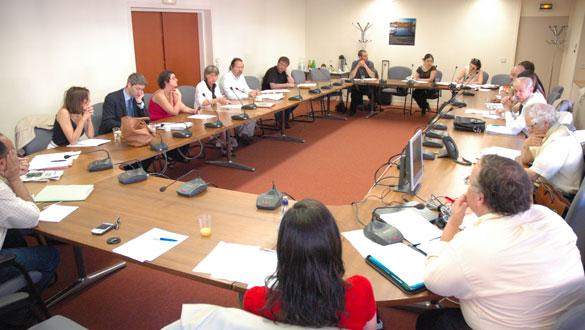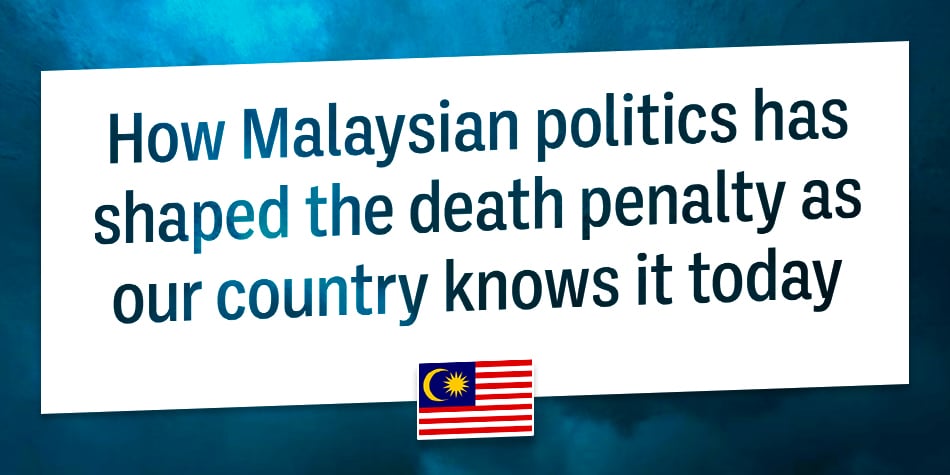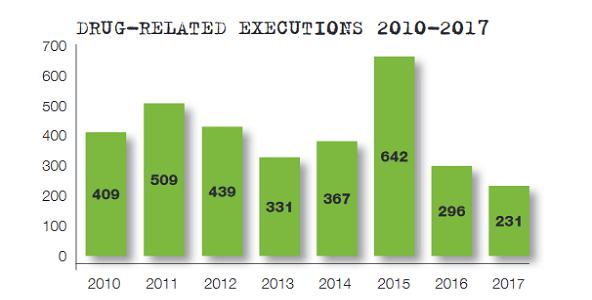High-Level Remote Panel on the Moratorium Resolution
On 5 November, a webinar gathering high-level panelists was held by Ensemble contre la peine de mort / Together Against the Death Penalty (ECPM) as one of their initiatives for the moratorium campaign. Usually organized in New York, USA on the margins of the United Nations General Assembly (UNGA), the event had to be facilitated online this year due to the COVID-19 pandemic.
Steady Victories but Ongoing Challenges Within the Fight for Abolition
Repealing the death penalty is both an ancient idea and a modern issue. For instance, H.E. Stefano Stefanile, Deputy Permanent Representative of Italy to the United Nations, who took part in this high-level panel, mentioned that the Grand Duchy of Tuscany had abolished capital punishment in 1786 – long before Italy was unified. Today, abolitionist progress worldwide is undeniable. In 2019, roughly 90% of UN member States did not carry out any executions, and almost 60% of them have abolished the death penalty in law for all crimes. As for the number of executions, the right to life has met another victory with a 5% decrease in executions recorded in 2019 compared to 2018, thereby reaching their lowest level in at least 10 years.
The ambassadors of Belgium, France, Italy, Switzerland – the latter cochairs the interregional taskforce in charge of drafting the resolution text this year – as well as the European Union all recalled that the abolition movement enjoys the full support of their countries or organizations. In his brief introduction, Pr. William Schabas, professor of International Law, also shared an enthusiastic view on the abolition of death penalty, as he considers universal abolition to be nearly completed by 2030.
Despite legitimate optimism, lowering our guard would undoubtedly be a mistake. As panelists recalled, abolition is not an absolute given. Today, two-thirds of the world’s population live under the yoke of a domestic legislation that provides for the death penalty, H.E. Nicolas de Rivière, Permanent Representative of France to the United Nations, pointed out. Since the first moratorium resolution was adopted by the UNGA in 2007, new issues have been raised as regards to the numerous violations of human rights perpetrated when issuing a death sentence, such as miscarriages of justice, torture, and discrimination, among others.
A Symbolic Text as a First Step Towards Universal Abolition
The resolution for a moratorium on executions is a text adopted by the United Nations General Assembly, which convenes all UN member states, every other year since 2008 – after the first one had been adopted in 2007. Support in favor of this resolution is steadily gaining ground with a record 121 votes in favor in 2018. This sent a very symbolic message to the whole abolitionist community, including positive votes from States that are considered abolitionist in practice after no execution has been recorded in ten years. As only 106 UN member States have formally abolished the death penalty, this result means that abolition in law offers hope for new supporters. However, recent studies conducted by ECPM showed that approximatively 20% of UN member States’ votes were not in line with the actual domestic situation of the death penalty.
As its name suggests, the resolution does not call upon States to formally abolish the death penalty, but rather to only to suspend executions, Pr. Nadia Bernoussi, a Professor of Constitutional Law and a Representative of Morocco to the UN Human Rights Council Advisory Committee, explained. Like any other resolutions adopted by the UNGA, she proceeded, the moratorium resolution is not legally-biding for States that favored it, but this might be what makes it of strength and interest for the abolitionist community. Voting in favor of the resolution is not onerous for States, even for those that still retain capital punishment in law, so they all should be strongly encouraged to support it. Additionally, support for the resolution has already been a springboard to new abolitions.
In 2018, the vote of the resolution text within the UN Third Commission, prior to being adopted at the plenary session of the UNGA, raised important discussions over States’ sovereign right to impose appropriate legal penalties to persons under their jurisdiction. H.E. Alhem Sara Charikhi, Diplomat of the Embassy of Algeria to the United Nations, explained that Algeria has favored the moratorium resolution since 2007 despite retaining the death penalty in law. In this regard, she added, Algeria is the only country in the MENA area that has never changed its stand on the text. Indeed, Algeria has decided to observe a de facto moratorium on executions since 1993 despite facing a page of its history that is riddled with terrorism.
A Time for Arguments and Commitments
Ivan Šimonović, Commissioner at the International Commission Against the Death Penalty and former UN Assistant Secretary-General for Human Rights, took time to remind people attending the panel of some of the main arguments against capital punishment. Studies show that the death penalty has no unique deterrent effect on the commission of crimes and that it disproportionally affects the most vulnerable people, as well as the well-being of third persons who are involved in the criminal proceedings (ranging from capital defendant’s relatives to prosecutors).
Above all, capital punishment is not a sole criminal matter but a social issue, as it tends to affect the whole society. According to Ivan Šimonović, there seems to be a high correlation between the death penalty and authoritarianism. Abolition, however, is always a matter of human rights and dignity.
H.E. André Aseba, Minister of Human Rights of the Democratic Republic of the Congo (DRC), wished to highlight that the current Constitution of the DRC enshrines the supremacy of international standards. These provisions contributed to overcoming legal loopholes in some cases by allowing a judge to draw on the 2002 Rome Statute to the International Criminal Court (ICC) to issue a decision he might not have been able to take otherwise. This could inspire judges working on death penalty cases, he added. H.E. André Aseba repeated his commitment to helping the DRC accede to international standards aimed at the abolition of the death penalty. “I am sure we will manage to vote on the resolution this time,” he concluded.
Tentative Voting Procedure Schedule
The resolution text is expected to be voted on first at the UN Third Committee level in mid-November, then at the UNGA plenary session in mid-December.







